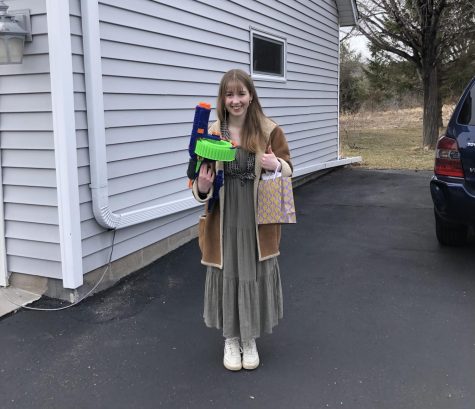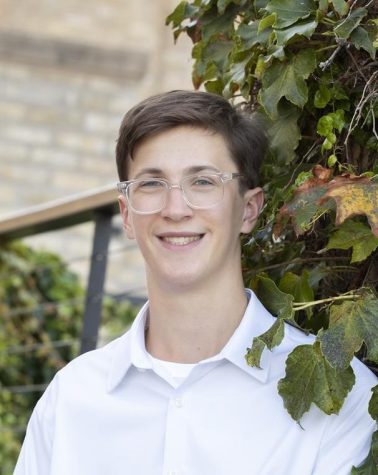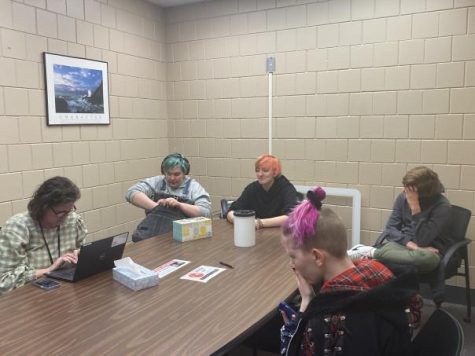Stillwater seeks approval for raising bees
The residents of Stillwater want to become a pollinator friendly community. There was a city council meeting regarding this concern on Sept. 16. The Honey Bee Club of Stillwater wanted a bill to pass that would protect the bees by requiring the Environmental Protection Agency to suspend the use of four of the pesticides belonging to the neonicotinoid class because they can kill bees outright or at low doses cause harm to bees immune system, navigation and foraging. People should not be using neonicotinoids. Bees play a crucial role in the environment and should not be living in fear.
Pollination occurs when pollen is moved within flowers or carried from flower to flower by pollinating animals such as birds, bees, bats, butterflies, moths and beetles. Pollination is important because plants grown for food, and medicines need to be pollinated by animals in order to be produced.
For example, apples, blueberries, coffee, chocolate, potatoes and other items are produced with the help of pollinators.
There is disturbing evidence that pollinating animals have suffered from loss of habitat, chemical misuse, invasive plant and animal species, diseases and parasites. There are ways the issues can be resolved.
Since 2006, beekeepers have been reporting annual losses around 30-50 percent of the bee population.
Mayor of Stillwater Ken Harycki explained, “The decline of bees is noticeable at my house in that I have plum trees which have not borne fruit in three years. The issue is getting a lot of attention and if there is something that we can do or change at the city level it makes sense to do it.”
Neonicotinoids are a systemic agricultural insecticide resembling nicotine.
Biology teacher Andy Weaver said, “If you use the chemical you can find it in the soil, plant tissues and the pulp that the plant makes. Insects and pollinators are dying when they come in contact with this chemical.”
Rose Floral has neonic0tinoid free nurseries.
Senior Sofia Mattson, works at Rose Floral. She explained, “For the past two years the owner decided to ban the chemical due to all the research that has came out, even though it costs us more to have something that is not neonicotinoid.”
There are ways people can support their local pollinators.
Weaver explained, “First of all, do not use neonicotinoids. Secondly plant common milkweed or bee friendly plants that can provide nectar. Insects need nectar year-round.”
Senior Andrea Rustad did her Girl Scout Gold Award project on Monarch butterflies.
Rustad said, “I got involved in the Pollinator Friendly Stillwater Project through my own project. We both try to support Monarch butterflies, bees and the prevention of neonicotinoids.”
The insecticides Clothianidin, Dinotefuran, Imidacloprid, Nitenpyram, Thiocloprid, Thiamethoxam and Acetamiprid include neonicotinoids. To find out whether an insecticide is a neonicotinoid, look on the list of active ingredients. The goal of being a pollinator friendly community is to support all the local pollinators. The first step is being aware of the problem, then coming up with ideas to be a part of the solution.

Jordan Fulin is a senior at SAHS. Other than newspaper she is also a part of Students for Social Justice Club and is a member of the Speech team. In her...







Ahnika Kroll • Oct 27, 2014 at 3:28 pm
I thought your title was really intriguing! I had no idea this legislation was being talked about, your way of introducing really simple information to the reader was super helpful for anyone who’s uninformed, myself as an example. I also thought your quote sources were really interesting choices, I can tell you did a lot of research on who would be good candidates to speak to. Awesome article!
Melissa Jernigan • Oct 26, 2014 at 7:54 pm
Overall great job! The statistic about 30-50% population decrease of bees really surprised me. It would’ve been nice to know about neonicotinoids earlier in the article. Didn’t know so many people were concerned about the issue!